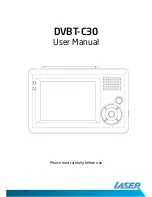
-
5
SAFE OPERATION
ENGLISH
CAUTIONS AGAINST BURNS & BATTERY EXPLOSION
A
To avoid burns, be alert for hot components, e.g. muffler, muffler
cover, radiator, pipes, hoses, engine body, coolant, engine oil, etc.
during operation and just after the engine has been shut off.
A
DO NOT remove the radiator cap while the engine is running or
immediately after stopping. Otherwise hot water from the radiator will
escape under pressure causing injury by scalding. Wait for more than
10 minutes to allow the coolant to cool down, before removing the
cap.
A
Make sure to close the drain valve of coolant and engine oil, close
radiator pressure cap and tighten hose clamps before operating. If
any of these parts are taken off, or left loose, serious personal injury
can result.
A
The battery presents an explosive hazard. When the battery is being
activated, hydrogen and oxygen gases are extremely explosive.
A
Keep sparks and open flames away from the battery, especially when
charging the battery. DO NOT strike a match near the battery.
A
DO NOT check battery charge by placing a metal object across the
terminals. Use a voltmeter or hydrometer.
A
DO NOT charge battery if frozen, there is a risk of explosion. When
battery is frozen, allow the battery to warm up to 16
(61
) before
charging.
A
DO NOT use or charge the battery if its fluid level is below the
LOWER (lower limit level) mark (refillable type battery only).
Otherwise, the component parts may deteriorate earlier than
expected, which may shorten the service life or cause an explosion.
Add distilled water until the fluid level is between the UPPER and
LOWER levels.
ANTI-FREEZE & DISPOSAL OF FLUIDS
A
DO NOT run the engine with installed safety guards detached. Anti-
freeze contains poison. Wear rubber gloves to avoid personal injury.
In case of contact with skin, wash it off immediately.
A
DO NOT mix different types of Anti-freeze. The mixture can produce
chemical reaction causing harmful substances. Use approved or
genuine KUBOTA Anti-freeze.
A
Be mindful of the environment and the ecology. Before draining any
fluids, find out the correct way of disposing of them. Observe the
relevant environmental protection regulations when disposing of oil,
fuel, coolant, brake fluid, filters and batteries.
A
When draining fluids from the engine, place some container
underneath the engine body.
A
DO NOT pour waste onto the grounds, down a drain, or into any water
source.
Summary of Contents for GL11000-CAN
Page 2: ...GL 7000 CAN GL 11000 CAN AX L 14 20 1 AK ...
Page 15: ...SAFE OPERATION 8 ENGLISH ...
Page 17: ......
Page 54: ...37 WIRING DIAGRAM ENGLISH WIRING DIAGRAM ...
Page 55: ...WIRING DIAGRAM 38 ENGLISH ...













































